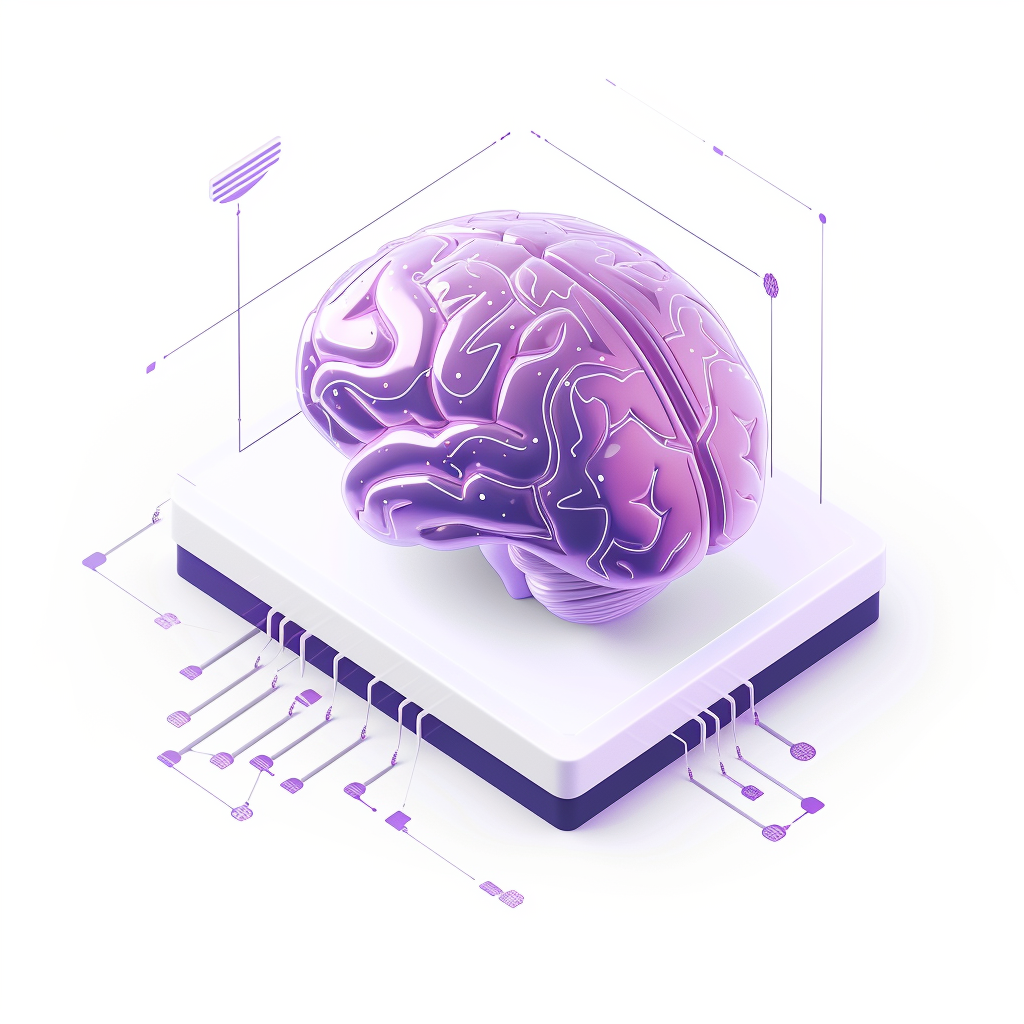In an era where digital transformation is no longer optional, artificial intelligence (AI) has emerged as a game-changer for businesses, particularly small enterprises eager to enhance their operational efficiency and customer engagement.
With over 58% of small business owners already using AI, 83% planning to invest in AI technologies within the next year, and a projected global AI market value of $15.7 trillion by 2030, the message is clear: AI adoption is not just about staying competitive—it’s about survival and growth in an increasingly digital world.
As businesses increasingly recognize AI’s transformative power, it becomes essential to understand what AI is and why it is booming. To quickly brief through, what exactly is AI?
At its core, AI refers to the simulation of human intelligence processes by machines, particularly computer systems. This includes learning, reasoning, and self-correction.
Artificial intelligence represents a fundamental shift in how businesses operate and make decisions. Unlike traditional software that follows rigid, predefined rules, AI systems can learn from experience and improve over time.
These systems recognize patterns in complex data sets, make autonomous decisions, process natural language, and adapt to new scenarios as they emerge. This adaptability makes AI particularly valuable for small businesses.
The importance of adapting AI now cannot be overstated. Companies leveraging AI technologies can expect significant improvements in operational efficiency, enhanced customer experiences, and increased revenue growth.
The Urgency of AI Adoption: Why Now?
According to McKinsey research, the business world has undergone a dramatic transformation. AI-powered companies consistently outperform their competitors by a factor of 3.4. This performance gap widens as customer expectations for instant, personalized service reach unprecedented levels.
The acceleration of remote work and digital transformation has created an environment where businesses must adapt quickly or risk falling behind. Small businesses that embrace AI now position themselves to capture market share and establish competitive advantages that will be increasingly difficult for late adopters to overcome.
The financial landscape for AI adoption has also shifted dramatically in favor of small businesses. What once required substantial capital investment can now be accessed through affordable cloud-based solutions. Modern AI tools offer scalable pricing models that allow small businesses to start small and expand their usage as they grow.
The return on investment often materializes within months rather than years, with many businesses reporting significant cost savings through automation and improved decision-making. Early adopters have documented 20-30% operational cost reductions by automating routine tasks alone.
AI in Customer Service
For instance, the revolution in customer service through AI has fundamentally changed how small businesses interact with their customers. Modern AI-powered chatbots now handle up to 80% of routine customer queries. With it, they now provide instant responses at any hour of the day.
These systems go beyond simple automated responses, learning from each interaction to provide increasingly personalized and relevant assistance. Complex issues are intelligently routed to human agents, creating a seamless hybrid service model that maximizes efficiency while maintaining high customer satisfaction levels. Predictive support capabilities even allow businesses to address potential issues before they escalate, dramatically reducing customer churn and enhancing loyalty.
AI in Marketing
Similarly, AI has transformed marketing from an art into a science, enabling small businesses to deliver precisely targeted messages to their audiences. AI systems can predict customer preferences and automatically adjust marketing strategies in real time through sophisticated analysis of customer behavior patterns.
Content delivery becomes personalized at scale, with each customer receiving messages tailored to their specific interests and stage in the buying journey. Campaign optimization occurs continuously, with AI systems automatically adjusting parameters to maximize return on advertising spend. The technology’s ability to predict customer lifetime value allows businesses to focus their resources on the most promising opportunities.
AI in Operations
Similarly, In operations, AI has introduced high levels of efficiency and predictability. Automated inventory management systems now accurately predict demand patterns, reducing stockouts and overstock situations. Predictive maintenance algorithms analyze equipment performance data to forecast potential failures before they occur, dramatically reducing costly downtime.
Resource allocation becomes optimized through smart scheduling systems that consider countless variables simultaneously. Quality control reaches new levels of precision through computer vision systems that can detect subtle defects human inspectors might miss.
What can be done and achieved with AI is endless, and the transformation just started. Businesses leveraging AI technologies can expect substantial improvements in operational efficiency, cost savings, and overall performance.
Now, here comes the big question: How can these AI tools help my business? Here are a few top-selected AI tools that can help you as a small business owner, making your day-to-day operations easier, faster, cheaper, and better.
Top Key AI-Powered Apps For Small Business Owners
Small businesses can enhance their operations by leveraging various AI-powered applications. Below is a detailed overview of key apps across different categories, including their features and pricing.
Task Management
1. ClickUp: ClickUp is an all-in-one project management tool designed to help teams manage tasks efficiently.
Key Features:
- Automates task assignments based on workload and deadlines.
- Built-in time tracking allows users to monitor time spent on tasks.
- You can create personalized dashboards for project visibility.
- Connects with over 1,000 other apps for a seamless workflow.
- ClickUp uses machine learning algorithms to predict task completion times based on historical data and team performance. It also suggests optimal task assignments based on individual workloads.
Pricing:
- Free tier available
- Paid plans start at $7 per user per month and offer more advanced features, such as Gantt charts and goal tracking.
2. Notion AI: Notion combines note-taking with task management capabilities, allowing teams to collaborate effectively while managing projects.
Key Features:
- Helps generate content ideas and drafts based on prompts.
- Offers databases for tracking projects, tasks, and notes.
- Integrates with various third-party applications like Google Drive.
- Provides numerous templates for project management and documentation.
Pricing:
- Free tier available
- Paid plans start at $10 per user per month, which includes advanced features like version history.
Customer Service Solutions
3. Tidio: Tidio is an AI-powered chatbot that enhances customer support through real-time interactions.
Key Features:
- 24/7 Customer Support: Chatbots provide instant responses to customer inquiries anytime.
- Monitors website visitors in real-time to engage them proactively.
- Works seamlessly with platforms like Shopify and WordPress.
- Offers pre-built templates for various industries.
Pricing:
- Free plan available
- Paid plans start at $59 monthly and can handle up to 2000 conversations.
4. Drift: Drift focuses on conversational marketing by automating customer interactions through intelligent chatbots.
Key Features:
- Allows real-time conversations with website visitors.
- Provides instant answers to frequently asked questions.
- Connects with popular CRM systems for lead management.
- Tracks engagement metrics and conversation outcomes.
Pricing:
- Starts at $2,500 per month, with additional features available in custom higher tiers.
5. Zendesk: Zendesk offers a comprehensive customer service platform that utilizes AI to enhance support operations.
Key Features:
- Supports email, chat, social media, and phone interactions.
- Automatically categorizes and prioritizes support tickets based on urgency.
- Analyzes feedback to improve service quality continuously.
- Enables businesses to create self-service resources for customers.
Pricing:
- Plans start at $55 per agent per month, with advanced features in higher tiers.
Marketing Automation Tools
6. HubSpot: HubSpot is a leading marketing automation platform that leverages AI for personalized marketing campaigns.
Key Features:
- Automates email campaigns based on user behavior and preferences.
- Prioritizes leads based on their conversion likelihood.
- Provides insights into campaign performance and ROI tracking.
- Allows users to create landing pages optimized for conversions.
Pricing:
- Free tier available
- Paid plans start at approximately $15 monthly, depending on the selected features.
7. Mailchimp: Mailchimp is an email marketing service that uses AI to optimize campaigns and increase engagement rates.
Key Features:
- Allows targeted marketing efforts based on user demographics and behavior.
- Tests different versions of emails to determine the most effective content.
- Analyzes past interactions to forecast future actions.
- Works seamlessly with platforms like Shopify for automated product recommendations.
Pricing:
- Free plan available
- Paid plans start at approximately $20 monthly but depend heavily on your audience base.
8. MarketMuse: MarketMuse uses natural language processing (NLP) to optimize content marketing efforts by analyzing performance data and suggesting improvements.
Key Features:
- Content research tools for identifying relevant topics and keywords based on competitive analysis.
- Automated content scoring system that evaluates content quality against industry standards.
- Suggestions for improving existing content based on SEO best practices.
- Integration capabilities with various CMS platforms for seamless publishing.
Pricing:
- Custom pricing based on business needs typically starts at around $99 monthly.
Sales Automation
9. Salesforce Einstein: Salesforce Einstein integrates AI into the Salesforce platform to enhance sales strategies through predictive insights into customer behavior.
Key Features:
- Lead scoring based on historical data analysis.
- Automated data entry functionalities reduce manual input errors.
- Personalized recommendations for upselling opportunities based on customer interactions.
Pricing:
- Depending on selected features, plans start at approximately $75 per user per month.
10. PandaDoc: PandaDoc automates document creation and management using AI, streamlining the sales process significantly.
Key Features:
- Template library allows quick document generation tailored to business needs.
- E-signature capabilities facilitate seamless contract execution without delays.
- Analytics dashboard tracks document performance metrics such as open rates or time spent reviewing documents before signing them off!
Pricing:
- Starts at $19 per user per month, with additional features in higher tiers.
Financial Management
11. QuickBooks: QuickBooks leverages AI for automated bookkeeping and financial forecasting, making it easier for small businesses to manage finances effectively.
Key Features:
- Automated expense tracking through receipt scanning technology saves time while ensuring accuracy!
- Financial reporting tools provide insights into cash flow analysis & forecasting trends over time!
- Integration options available with various banking institutions allow real-time updates on transactions!
Pricing:
- Plans start at approximately $19 per month, depending upon chosen features!
12. Expensify: Expensify automates expense reporting through receipt scanning and categorization using machine learning algorithms, simplifying financial management processes!
Key Features:
- Smart receipt scanning technology captures expense details automatically, reducing manual entry errors!
- Integration options are available with accounting software like QuickBooks or Xero!
- Real-time expense tracking & reporting capabilities enable better financial oversight!
Pricing:
- Free plan available
- Paid plans start at approximately $5/user/month!
Data Analytics
13. Tableau: Tableau is a powerful data visualization tool employing AI that helps small businesses glean insights from their data and make informed decisions!
Key Features:
- The drag-and-drop interface simplifies data manipulation, allowing users without technical expertise to create visualizations easily!
- Real-time data analytics capabilities provide up-to-date insights into business performance metrics!
- Integration options are available across multiple sources, including spreadsheets, databases, cloud services, etc.
Pricing:
- Starts at approximately $70/user/month!
Content Creation
15. Fello AI: Fello AI is a chatbot assistant designed specifically for content creation and team collaboration that uses advanced models like ChatGPT to streamline project management by analyzing team dynamics.
Key Features:
- Generates multiple options for headings, sub-headings, and text fields across various platforms, such as landing pages and marketing materials.
- Users can upload PDFs—study materials or reports—and ask questions directly about the content for quick insights.
- Assists in writing engaging social media posts and developing marketing strategies through diverse prompts.
- Analyzes team interactions to suggest improvements in collaboration efficiency.
Pricing
- Pricing varies based on usage; it typically starts around – – – per user per month.
16. Canva: Canva offers AI-assisted design capabilities, enabling users to create professional marketing materials easily without extensive design skills!
Key Features:
- The drag-and-drop design interface provides thousands of templates suitable to various industries, ensuring consistency across branding efforts!
- Collaboration features enable team members to work together in real time, enhancing productivity during design phases!
- Brand kit functionalities maintain consistent branding across all materials created within the platform, ensuring brand identity integrity is maintained throughout campaigns launched via their toolset!
Pricing:
- Free tier available; paid plans start at approximately $15/month!
17. Grammarly: Grammarly enhances writing quality through real-time feedback-powered natural language processing, making it an essential tool for content creation!
Key Features:
- Grammar checking, style suggestions, and tone detection capabilities.
- Plagiarism detection feature ensuring originality in content creation.
- Browser extensions allow seamless integration across various platforms (e.g., emails, documents).
Pricing:
- Free tier available
- Premium plans start at approximately $12 per month when billed annually.
Tips for Integration
To effectively integrate AI into existing workflows, small businesses should consider the following best practices:
1. Identify Business Needs:
- Evaluate current processes and workflows to identify bottlenecks, inefficiencies, and repetitive tasks that could benefit from automation.
- Gather input from employees at all levels to understand their pain points and areas where AI could enhance productivity.
- Establish specific goals for what you want to achieve with AI integration.
2. Choose the Right Tools:
- Explore various AI applications that cater to your identified needs.
- Consider factors such as features, ease of use, integration capabilities with existing systems, and vendor support.
- Opt for solutions that can grow with your business.
- Choose applications with intuitive interfaces that require minimal staff training. This will facilitate quicker adoption and reduce resistance to change.
3. Train Employees:
- Create a structured training program covering using the new AI tools and their benefits to daily operations.
- This should include hands-on sessions, tutorials, and access to resources for ongoing learning.
- Foster an environment where employees feel comfortable asking questions and seeking help navigating new technologies.
- Engage employees in the selection and implementation process of AI tools. Their insights can provide valuable perspectives on usability and functionality.
4. Start Small with Pilot Projects:
- Choose an area or project where you can test the AI tool’s effectiveness without committing to a full-scale rollout. For example, you could automate customer inquiries through chatbots or use predictive analytics for inventory management.
- Involve a small group of users in the pilot phase to gather feedback on their experiences with the tool.
- After the pilot project concludes, assess its impact against your predefined objectives.
- Analyze performance metrics such as time saved, increased efficiency, and user satisfaction to determine if the tool meets your expectations.
5. Monitor Performance Continuously:
- Define KPIs that align with your business goals to measure the effectiveness of the AI tools implemented. These include metrics like response times, customer satisfaction scores, or sales conversion rates.
- Utilize analytics dashboards provided by your AI tools to monitor performance in real-time. Review this data regularly to identify trends, successes, and areas needing adjustment.
- Understand that integrating AI is not a one-time event but an ongoing process. Be open to making changes based on performance data and user feedback to optimize results continually.
The Future of Small Businesses With AI
The dawn of AI in small businesses isn’t just another technological shift—it’s a renaissance of possibility. From the corner café using predictive analytics to reduce waste to the local boutique crafting personalized shopping experiences through AI-driven insights, we’re witnessing a transformation that levels the playing field between small enterprises and corporate giants.
The tools that once seemed out of reach are now as accessible as your smartphone, turning small businesses into agile competitors in markets previously dominated by industry titans.
But the real story isn’t in the technology itself—it’s in the dreams it helps realize. Small business owners can now spend less time buried in spreadsheets and more time mentoring their teams, innovating their products, or connecting with their customers. This isn’t about replacing the human touch that makes small businesses special; it’s about enhancing it, giving entrepreneurs the freedom to focus on what they do best: building relationships and creating value in their market.
As we move closer to the future, the thriving businesses won’t necessarily be the ones with the biggest budgets or the most advanced technology. Success will come to those who thoughtfully blend AI capabilities with their unique vision and values, creating experiences that are both efficient and authentically human.







